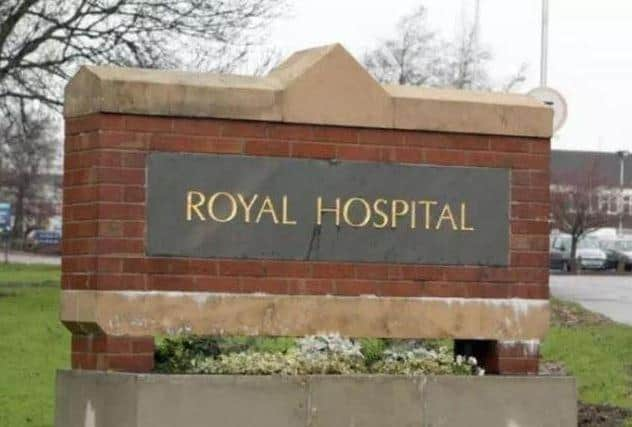Number of Chesterfield patients needing critical care has ‘plateaued’ says hospital
and live on Freeview channel 276
According to the hospital, its intensive treatment unit (ITU) is now averaging around 10 patients, rather than 15.
A total of 73 patients have sadly lost their lives at the Royal after testing positive for Covid-19.


Advertisement
Hide AdAdvertisement
Hide AdSince March 21, 172 coronavirus patients have returned home after receiving care and treatment at the hospital.
Lynn Andrews, director of nursing and patient care at the Royal, said: “Our condolences and thoughts are with those who have lost loved ones in the outbreak.
“We are also pleased that we can share some positive news as well and hopefully that gives people perspective, not to mention renewed faith.
“Staying at home, right now, really does protect the NHS and is helping to save lives.
Advertisement
Hide AdAdvertisement
Hide Ad“Nationally there is a sense of coming through the peak of this outbreak and a feeling that the ‘immediate’ response is drawing to a close and that we will be converting to a ‘new kind of normal’.
“It’s early days, but the signs are the numbers of patients requiring critical care have plateaued.
“That’s certainly been our experience on the Royal over the last few days, with our ITU areas averaging around 10 patients, rather than 15.
“The next challenge will be to keep the peak of the outbreak elongated and we’ll need to work together as a health system to ensure that happens – and to think differently about how we plan to deliver services from here on in.
Advertisement
Hide AdAdvertisement
Hide Ad“Going back, even to just a few weeks ago, isn’t a sensible option.
“This is a real opportunity to look at all the good things we’ve put in place.
“We’ve made some fantastic changes at pace – and we’ll want to retain these successes.
“In just a short space of time we have reached an 86 per cent telephone consultation rate for routine out-patient appointments and our colleagues at Royal Primary Care are triaging hundreds of patients a week in the same way.
Advertisement
Hide AdAdvertisement
Hide Ad“These adaptations and more have transformed how we work for the better.”
She added: “The next phase in the national incident response is termed ‘recovery, restoration and transformation’.
“The whole of the Derbyshire health and social care community will need to consider how it can work effectively to provide Covid and non-Covid care solutions.
“It’s important that we remember that all our organisations have patients and clients who need us and are entitled to receive the best possible care.
Advertisement
Hide AdAdvertisement
Hide Ad“We also have a real desire to start to get a wide range of key services up and running again.
“At the Royal we have already taken the decision to reopen another operating theatre to ensure those needing emergency and urgent surgery are treated quickly.
“Like the response to the incident, the majority of the NHS’s recovery will be done through Government strategy, but also with all local partners on-board.
“As I said, it’s early days, but we are in a good position to move forward – as soon as we are given the green light.”